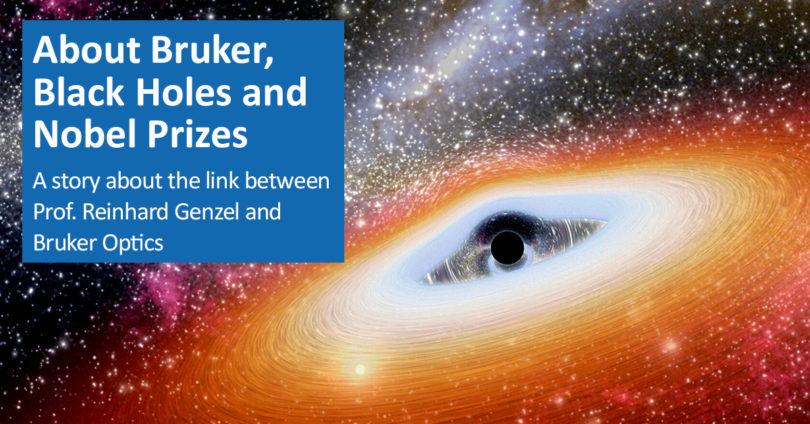A great story of Prof. Reinhard Genzel which also related to Bruker Optics
The Physics Nobel Prize 2020 has been awarded, together with two more researchers, to Prof. Reinhard Genzel, director of the Max-Planck-Institute for Extraterrestrial Physics in Garching Germany. He is honored for the pioneering discovery of a supermassive “black hole” at the center of our galaxy. This is what you may already know from the media and also we want to compliment the laureate on this achievement. But what you might not know is, that the paths of the laureates, his family and Bruker Optics crossed several times in the past. Not without pride we want to share this history with you.
In the early 1970s Bruker introduced its first FTIR R&D spectrometer with the famous Genzel interferometer, which has been developed in close cooperation between Bruker and Prof. Ludwig Genzel, the father of Reinhard Genzel. The Genzel interferometer became the heart of the legendary IFS 113v FTIR vacuum R&D spectrometer, which set the corner stone of Bruker’s success story in the FT-IR field. While Ludwig Genzel continued his research career as director of the Max-Planck-Institute for Solid State Research, one of his most talented diploma students was hired by Bruker and became later the first director of the newly founded Bruker Optik GmbH in Ettlingen, Germany. In remembrance of this great cooperation, Bruker Optics still donates the well-respected Ludwig-Genzel-Prize to young researchers for exceptional contributions to the field of condensed matter spectroscopy.

Thanks to the historical relationship, in 2011 we succeeded inviting Prof. Reinhard Genzel to give the traditional “Dinner Talk” at our yearly German User Meeting. An audience of over 150 Bruker Optics users and employees had the chance to listen to his impressive presentation. Prof. Genzel carried us into the fascinating world of Astrophysics with all its mysterious objects, such as supermassive black holes which finally brough him the Nobel Prize. Those who had the chance to attend this presentation will most likely never forget it.
Bruker Optics will further work closely together with researchers worldwide and support them with state-of-the-art FT-IR R&D spectrometers to continuously increase the knowledge of mankind.








